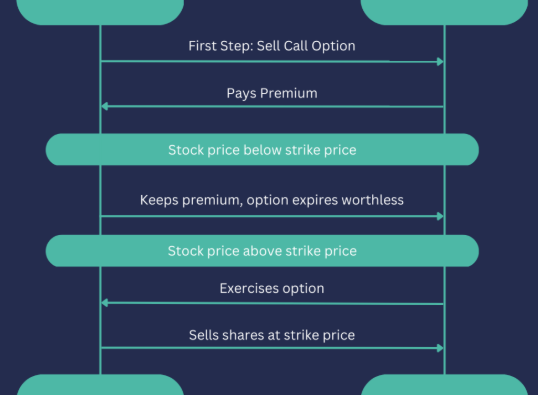
Personal finance refers to managing your money effectively to meet your current and future financial goals. This includes budgeting, saving, investing, and planning for retirement. Effective personal finance practices can help you achieve financial security and independence. In this article, we’ll explore the components of personal finance and share essential tips for managing your finances wisely.
What Is Personal Finance?
Personal finance encompasses all the financial decisions individuals or families make regarding their income, expenses, savings, and investments. It involves everything from budgeting and saving to managing debt and planning for retirement. The ultimate goal is to build a strategy that allows individuals to reach their financial objectives, whether short-term or long-term.
Personal finance is rooted in managing money strategically. While investing and saving are key elements, it all begins with developing a solid financial plan that includes a focus on making informed choices about spending, debt management, and asset accumulation.
The Importance of Managing Your Financial Situation
Financial stress is a common issue that affects many individuals. Money concerns can lead to anxiety, sleep disturbances, and overall poor mental health. One of the most effective ways to alleviate this stress is by gaining control over your finances and setting clear financial goals. By doing so, you can reduce anxiety, improve mental well-being, and gain peace of mind regarding your financial future.
Learning how to manage your finances empowers you to make better decisions, whether it’s budgeting for daily expenses or making major life choices like buying a home. Becoming financially literate is a crucial step toward achieving independence and financial security.
Key Components of Personal Finance
Managing your personal finances involves four main components:
- Income: The foundation of personal finance starts with having a steady income. This can come from various sources such as a salary, freelance work, business profits, or dividends. Understanding how to maximize and manage your income is critical for building a strong financial future.
- Expenses: Controlling expenses is just as important as increasing income. Having a budget allows you to track your spending, ensuring that you’re not overspending on non-essential items. Balancing your expenditures and setting aside funds for savings and investments are essential practices for long-term financial health.
- Investments: Investing is crucial for growing wealth. Whether it’s through stocks, real estate, bonds, or mutual funds, making smart investment choices helps build assets over time. Researching investment options and understanding your risk tolerance are key to making profitable decisions.
- Financial Security: Ensuring financial security involves protecting yourself from unforeseen events such as illness, accidents, or job loss. Insurance is a vital part of this strategy, providing a safety net for unexpected financial hardships. Building an emergency fund is also important to cover immediate expenses in times of crisis.
Personal Finance Tips for Effective Money Management
Here are some strategies to help you manage your money wisely:
- Save for Future Needs: Set aside money for both short-term needs (like monthly expenses) and long-term goals (like retirement). Ensure you divide your savings into categories such as emergency funds, investments, and savings for future purchases.
- Use Credit Responsibly: While credit cards can offer financial flexibility, they can also lead to debt if not used carefully. Use them sparingly and pay off balances in full each month to avoid high-interest charges.
- Monitor Your Credit Score: A good credit score helps you secure loans at lower interest rates. Make sure to pay bills on time and keep credit usage low to maintain a strong score.
- Minimize Debt: Avoid accumulating excessive debt. Focus on paying off high-interest debts like credit card balances first. Reducing debt helps free up more of your income for savings and investments.
- Emergency Fund: Maintain an emergency fund that can cover three to six months’ worth of living expenses. This fund will help you manage unexpected costs without derailing your financial plan.
- Tax Planning: Being aware of tax deductions and credits can help you minimize your taxable income and increase your savings. Consider working with a financial advisor to optimize your tax strategy.
- Plan for Retirement: Start saving for retirement early, whether through employer-sponsored plans like 401(k)s or individual retirement accounts (IRAs). The sooner you begin, the more time your money has to grow.
Essential Personal Finance Terms to Know
- Budget: A budget is a plan for tracking your income and expenses. It helps you see where your money goes and identify areas where you can cut back to save more or invest.
- Insurance: Insurance is a key part of financial planning. It provides coverage for risks like health issues, accidents, and property loss. Essential types include health, life, auto, and home insurance.
- Savings: Setting aside a portion of your income for future needs is crucial. This can include both short-term savings for emergencies and long-term savings for retirement.
The Personal Finance Methodology
Managing your finances effectively involves a systematic approach:
- Assess Your Current Situation: Start by understanding where you stand financially. Review your income, expenses, debt, and savings to get a clear picture of your financial health.
- Set Financial Goals: Based on your assessment, set clear, achievable financial goals. Whether it’s saving for a home, paying off debt, or building a retirement fund, having defined goals is essential for success.
- Identify Actions: Break down your goals into actionable steps. This might include creating a budget, reducing debt, or researching investment options. Each action should be linked to your long-term financial goals.
- Consider Your Options: Explore various financial strategies and decide which ones are best suited to your needs. Whether it’s diversifying investments or adjusting your spending habits, make informed decisions to support your financial goals.
- Take Action: Start implementing your financial plan. Begin saving, investing, and managing debt according to the steps you’ve outlined.
- Review and Adjust: Regularly check in on your financial progress. Adjust your plan as necessary to stay on track, especially if there are significant changes in your income or expenses.
Best Practices for Financial Planning
Here are some best practices to guide your personal finance journey:
- Create a comprehensive budget: Ensure that you allocate money for all necessary expenses and savings goals.
- Use credit wisely: Avoid overusing credit cards. Keep track of balances and pay them off regularly.
- Focus on debt reduction: Pay down high-interest debts and minimize unnecessary spending.
- Plan for retirement: Contribute regularly to retirement savings accounts and take advantage of employer matching contributions.
- Consider insurance: Having the right insurance policies protects you and your family from financial hardship in emergencies.
- Save for unexpected expenses: Build an emergency fund to cover unexpected costs like medical bills or home repairs.
Conclusion
Personal finance is about more than just managing money; it’s about building a foundation for financial security and long-term success. By focusing on budgeting, saving, investing, and planning for the future, you can take control of your finances and work towards achieving your financial goals. Whether you’re just starting out or looking to refine your strategies, understanding and managing your personal finance is essential for achieving a stable and prosperous future.










